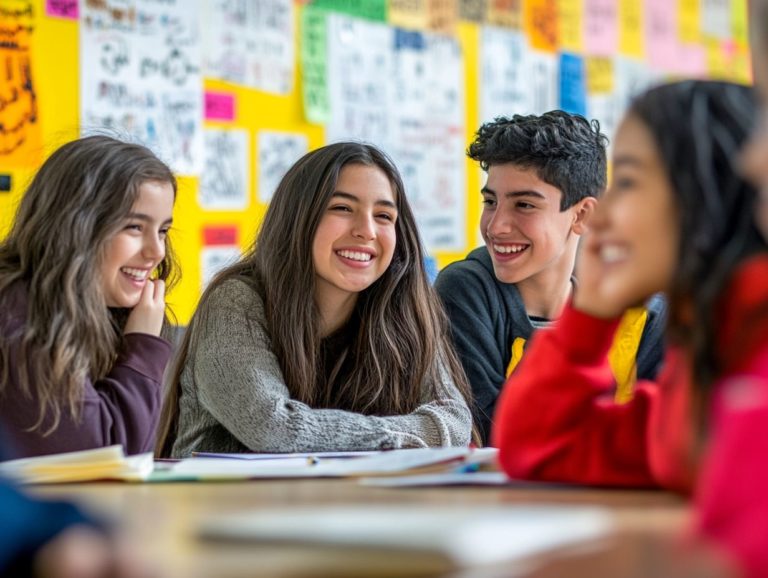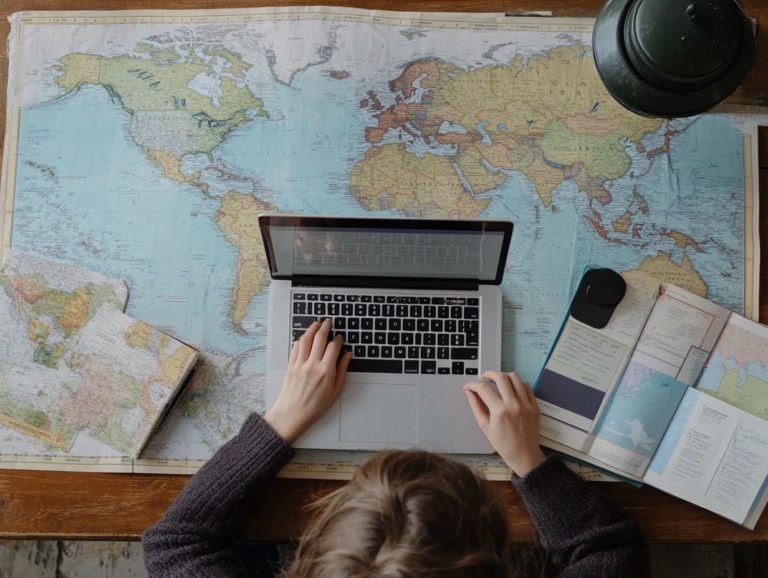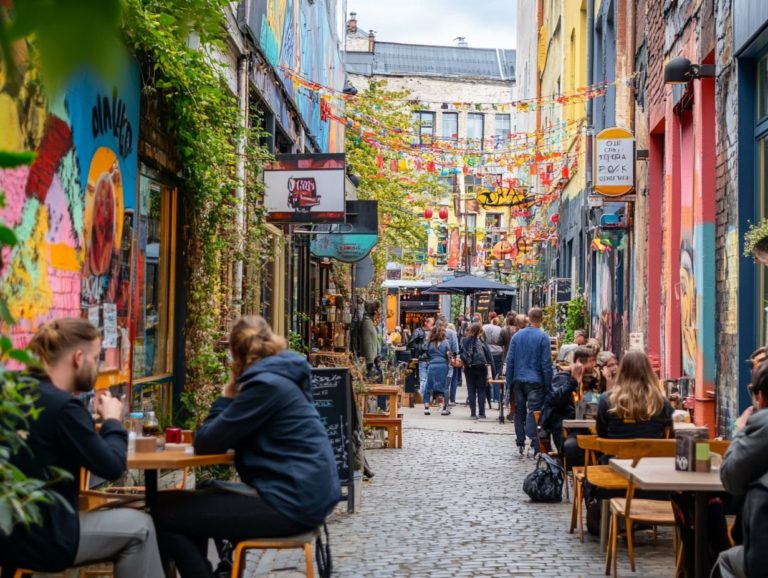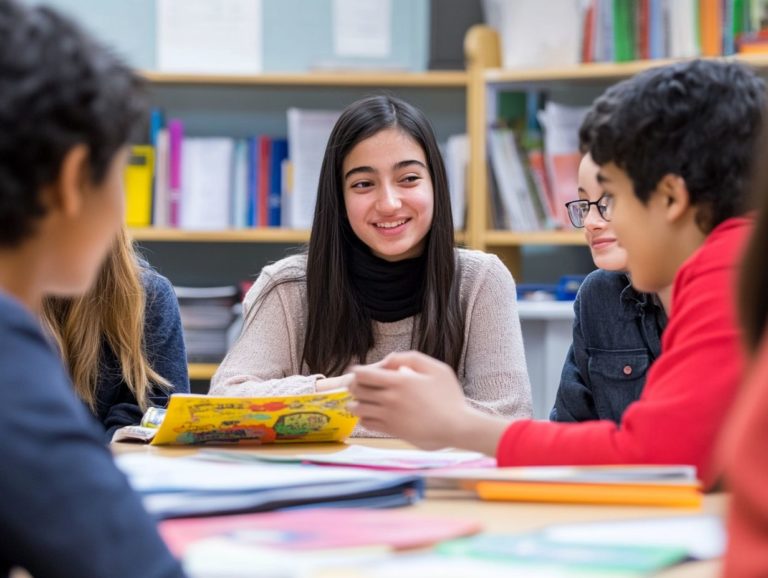how to utilize public events for language practice
Mastering a new language is an exhilarating journey. One of the most effective ways to enhance your skills is through regular practice.
This article explores the numerous benefits of getting involved in language practice at public events. You ll discover how to identify the right types of gatherings and receive tips for engaging with native speakers. We offer actionable strategies to help you maximize your experience.
You ll also find suggestions for fun activities to incorporate into events and methods for tracking your progress.
Are you excited to take your language skills to the next level? Let s jump in!
Contents
- Key Takeaways:
- The Importance of Language Practice
- Utilizing Public Events for Language Practice
- Engaging with Native Speakers
- Incorporating Language Learning into Event Activities
- Tracking Progress and Setting Goals
- Frequently Asked Questions
- What are some examples of public events for language practice?
- How can attending public events help improve language skills?
- What tips can help maximize public events for language practice?
- How can I find public events for language practice?
- How can I overcome shyness at public events when practicing a new language?
- Can public events substitute formal language learning?
Key Takeaways:
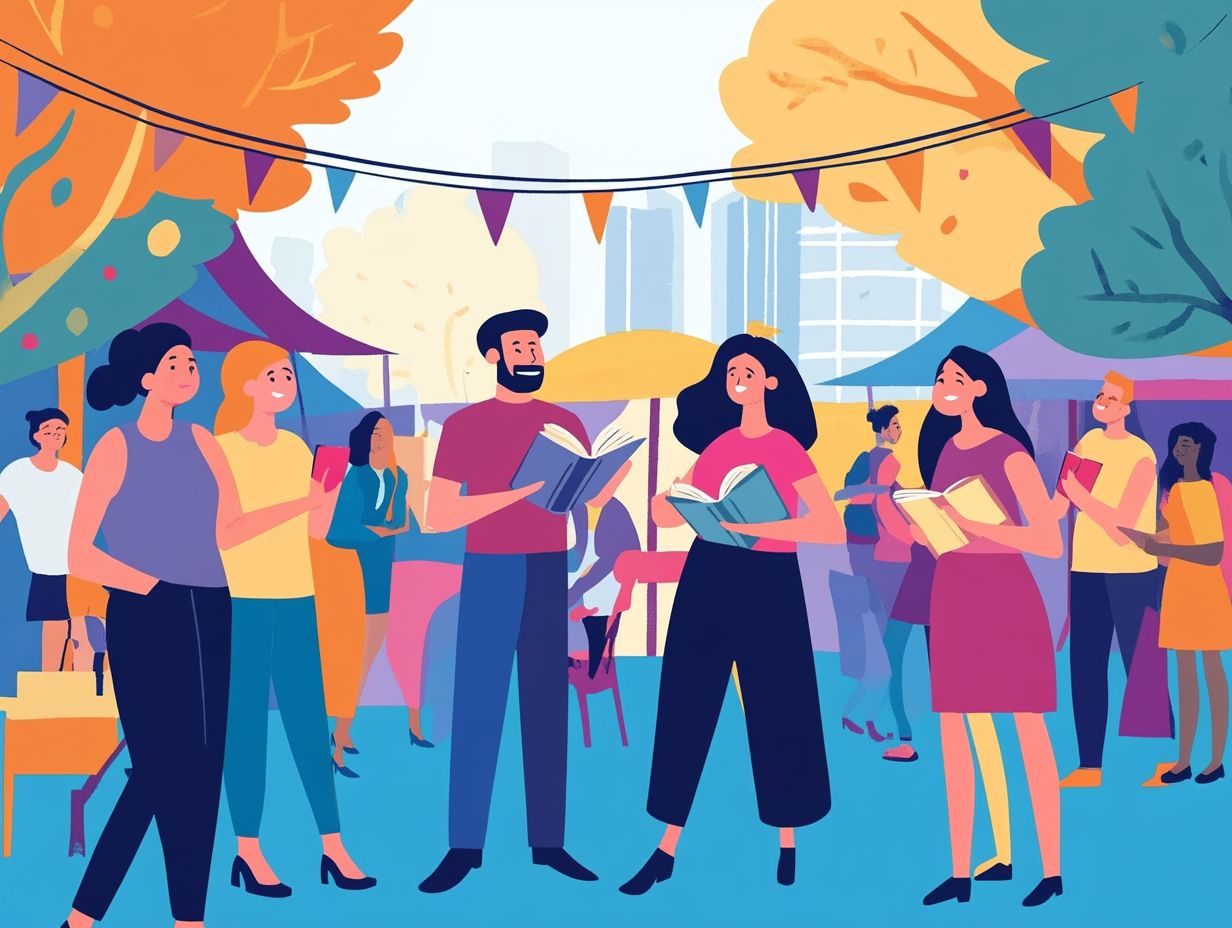
Regular language practice is essential for improving language skills and reaping its benefits. Public events such as festivals and meetups offer a diverse and immersive environment for language practice. Engage and communicate with native speakers at events using effective strategies, such as active listening and asking open-ended questions, which involves listening attentively and encouraging fuller responses.
The Importance of Language Practice
Language practice is crucial for honing your skills, particularly when learning a foreign language. Regular engagement sharpens your reading comprehension and conversational fluency while opening the door to diverse perspectives and cultures.
By getting involved in activities that promote language use, you can experience cultural richness firsthand, greatly enhancing your journey toward effective language learning.
Benefits of Regular Language Practice
Regular language practice offers a wealth of benefits that can significantly enhance your language skills and learning efficiency. You’ll notice improvements in reading comprehension and enjoy richer cultural immersion.
Among these benefits, consistent practice boosts your confidence while communicating. When you participate in community celebrations, such as local festivals or cultural gatherings, you gain the invaluable opportunity to interact with native speakers in a relaxed environment.
These interactions let you use your language skills. They also help you feel more comfortable speaking with others. Engaging in language exchange programs further enriches your experience, enabling you to expand your vocabulary in context as you discuss various topics with others.
This real-world usage of language fosters a deeper understanding of cultural nuances, making you more attuned to the subtleties that shape everyday communication.
Utilizing Public Events for Language Practice
Public events present vibrant opportunities for you to practice your language skills. They allow you to immerse yourself in language learning while actively participating in community celebrations and outdoor activities.
Types of Public Events to Attend
Attending a variety of public events be it community celebrations, festivals, or activities at educational institutions can significantly elevate your language practice opportunities. These gatherings attract a diverse mix of individuals, creating a perfect environment for you to engage in conversations with native speakers.
Take cultural festivals, for example; they showcase traditional music, dance, and cuisine, providing rich contexts for dialogue and experiential learning.
Workshops present another dynamic opportunity, offering interactive settings where you can hone your skills in a structured yet relaxed atmosphere, like cooking classes or art sessions.
Local museum events often include guided tours or informative talks, allowing you to expand your vocabulary and comprehension while uncovering the area’s rich history and culture.
Each of these experiences not only sharpens your linguistic abilities but also immerses you in the culture, making the entire learning journey both dynamic and enjoyable.
Don t wait! Start practicing your language skills today at local events!
Tips for Making the Most out of Language Practice at Public Events
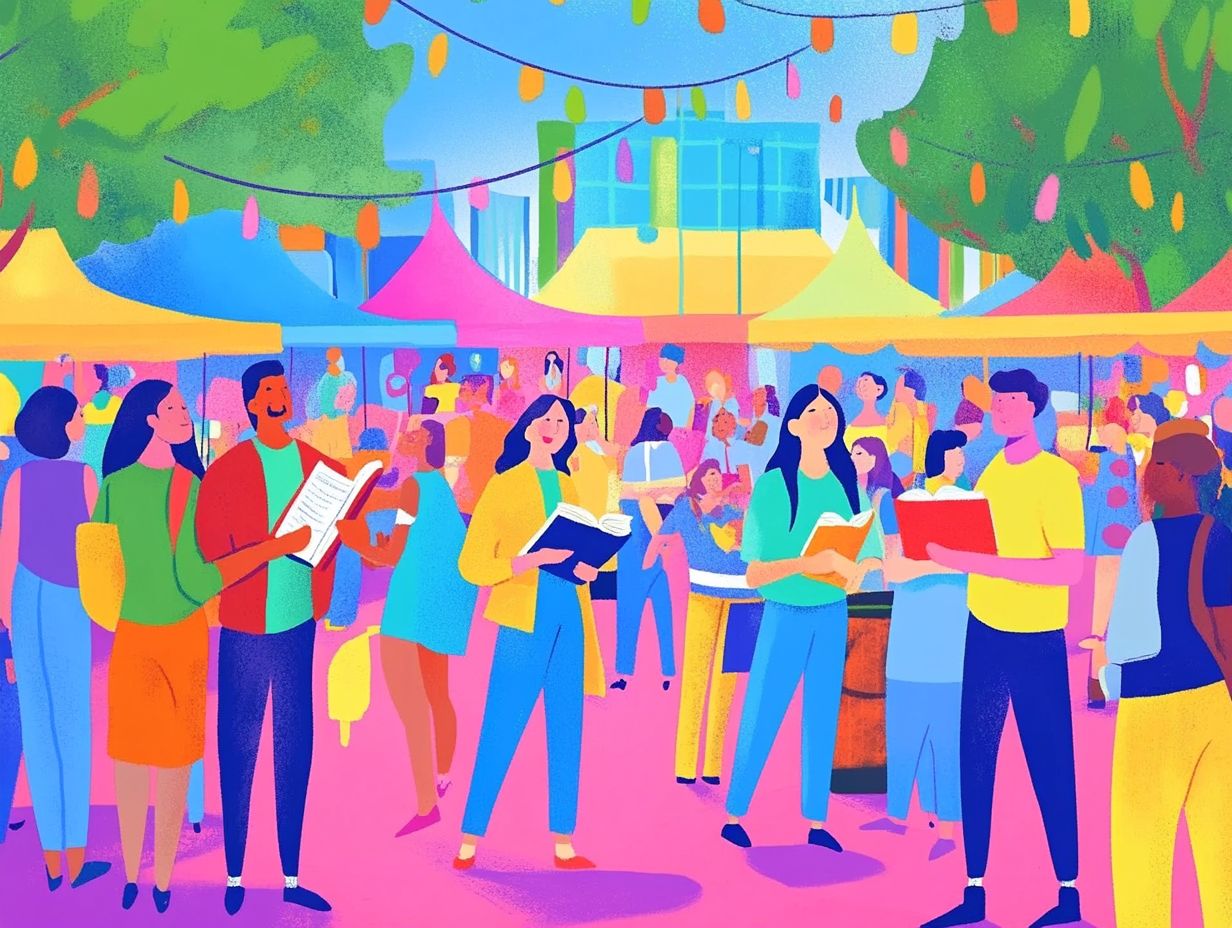
To truly maximize your language practice at public events, dive into interactive games and activities that promote getting involved in the local culture and celebrate community spirit.
By stepping out of your comfort zone and actively approaching native speakers, you can forge valuable connections that will transform your language journey into an exciting adventure! Engaging in group activities fosters camaraderie and provides a great platform for practicing conversational skills in a relaxed atmosphere.
Using language-focused games turns the learning process into an enjoyable and effective experience. It encourages creativity and spontaneity in your communication. Taking the initiative to engage with others opens the door to richer experiences and authentic learning opportunities, allowing you to fully immerse yourself in both the language and the culture.
Engaging with Native Speakers
Talking to native speakers is crucial. It gives you real-world experience and helps you understand their culture better.
Approaching Native Speakers at Events
Approaching native speakers at events can be rewarding, offering you invaluable opportunities for real-world language practice and cultural immersion.
To ease into these conversations, start with open-ended questions that invite deeper dialogue, like asking about their favorite local dishes or cultural traditions. Showing genuine interest in their responses fosters meaningful exchanges and creates a welcoming atmosphere.
Building friendships with language partners through these interactions can elevate your language learning journey. These connections often lead to a supportive network where you and your partners can learn from each other s experiences, making the language acquisition process more enjoyable and effective.
Effective Communication Strategies
Implementing effective communication strategies is essential for your interactions with native speakers. These approaches enable you to embrace diverse perspectives while enhancing your language skills.
Use active listening to catch subtleties in conversations. This improves your understanding and builds your confidence, encouraging you to engage more openly. Clarifying misunderstandings streamlines communication and fosters better connections.
Appropriate body language can convey emotions and intentions that mere words might not express, enriching your interactions. When you combine these techniques, you elevate your language proficiency and cultivate a deeper cultural understanding, creating an environment where you feel comfortable and motivated to practice and improve.
Incorporating Language Learning into Event Activities
Incorporating language learning into event activities through outdoor pursuits and interactive games can elevate the experience. It offers engaging and effective opportunities for language practice.
Games and Exercises for Language Practice
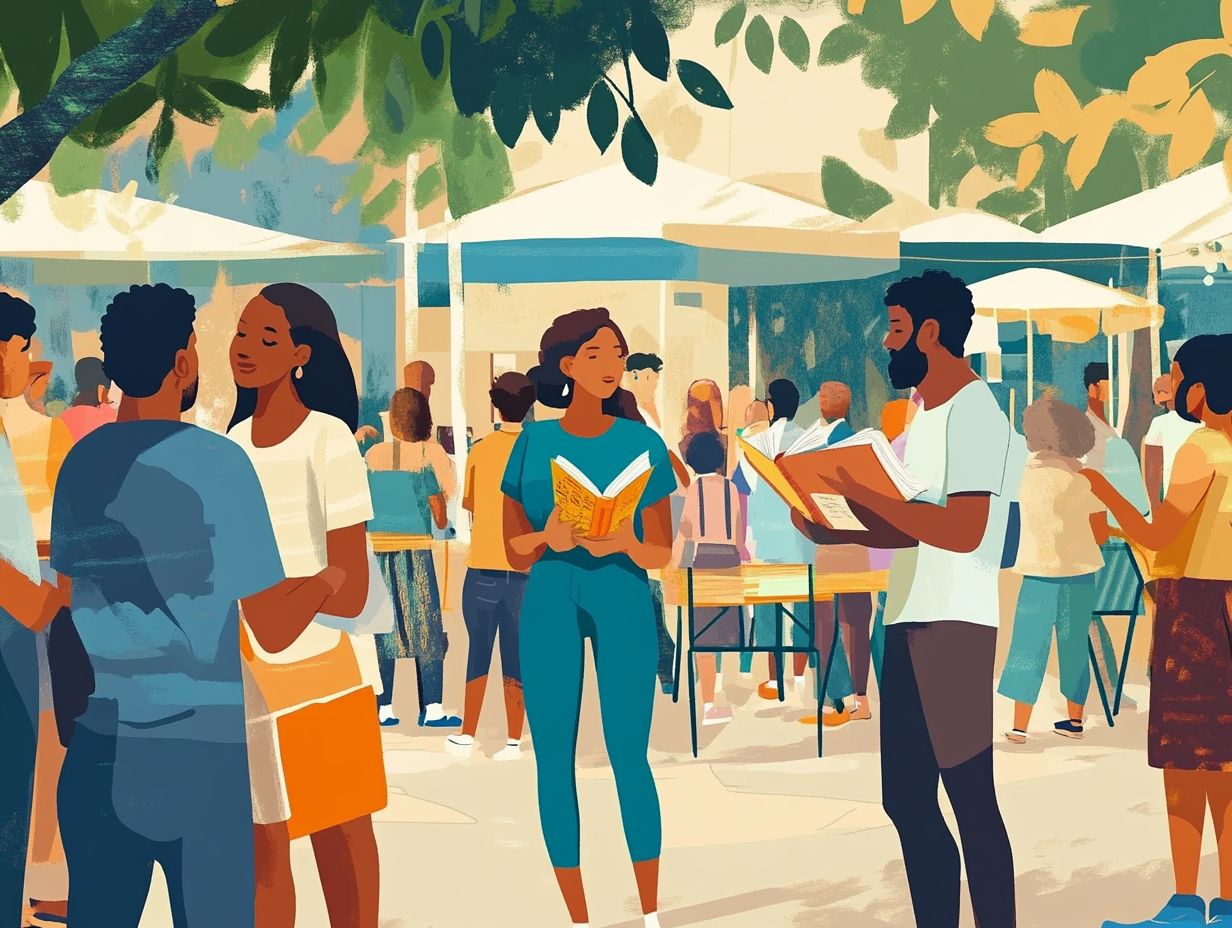
Interactive games and exercises crafted specifically for language practice can greatly enhance your learning experience and engagement.
Imagine participating in mock campaigns where you step into roles that require you to articulate viewpoints, negotiate, and persuade others in a vibrant, competitive setting. This approach sharpens your language skills while nurturing critical thinking and boosting your confidence.
Debate sessions can serve as dynamic arenas where you practice articulating arguments on various topics. They encourage the use of rich vocabulary and quick thinking. Both formats offer a delightful mix of fun and education, creating an environment where social interactions flourish.
You ll walk away with enhanced fluency and communication skills, ready to tackle any conversation with ease. So, get out there and practice!
Tracking Progress and Setting Goals
Tracking your progress and setting achievable goals are vital strategies for you as a language learner.
These practices help you measure your improvement and ensure that your language practice remains consistent and effective.
Measuring Language Improvement
Measuring your language improvement involves checking key areas like understanding what you read, learning new words, and speaking fluently.
To track your progress, use self-assessment techniques. These help you reflect on your strengths and identify areas to improve.
Getting feedback from language partners is invaluable. These real-time conversations highlight both challenges and successes in your communication.
Formal tests, like structured exams or online quizzes, can act as reliable benchmarks for your skills.
By tracking these metrics, you can spot trends and set realistic goals. This approach keeps you motivated and adjusts your study strategies as needed.
Setting Achievable Goals for Language Practice
Setting clear goals for your language practice ignites motivation and creates a roadmap for improvement.
Using SMART goals helps you target specific skills, such as learning new words or improving fluency. This focus allows you to see measurable progress.
Instead of a vague goal like “I want to get better at Spanish,” try “I aim to learn 30 new verbs this month.” Regularly reviewing these goals keeps them relevant and challenging.
Adjust your goals when necessary. This ensures the learning process remains dynamic and enjoyable.
Frequently Asked Questions
What are some examples of public events for language practice?
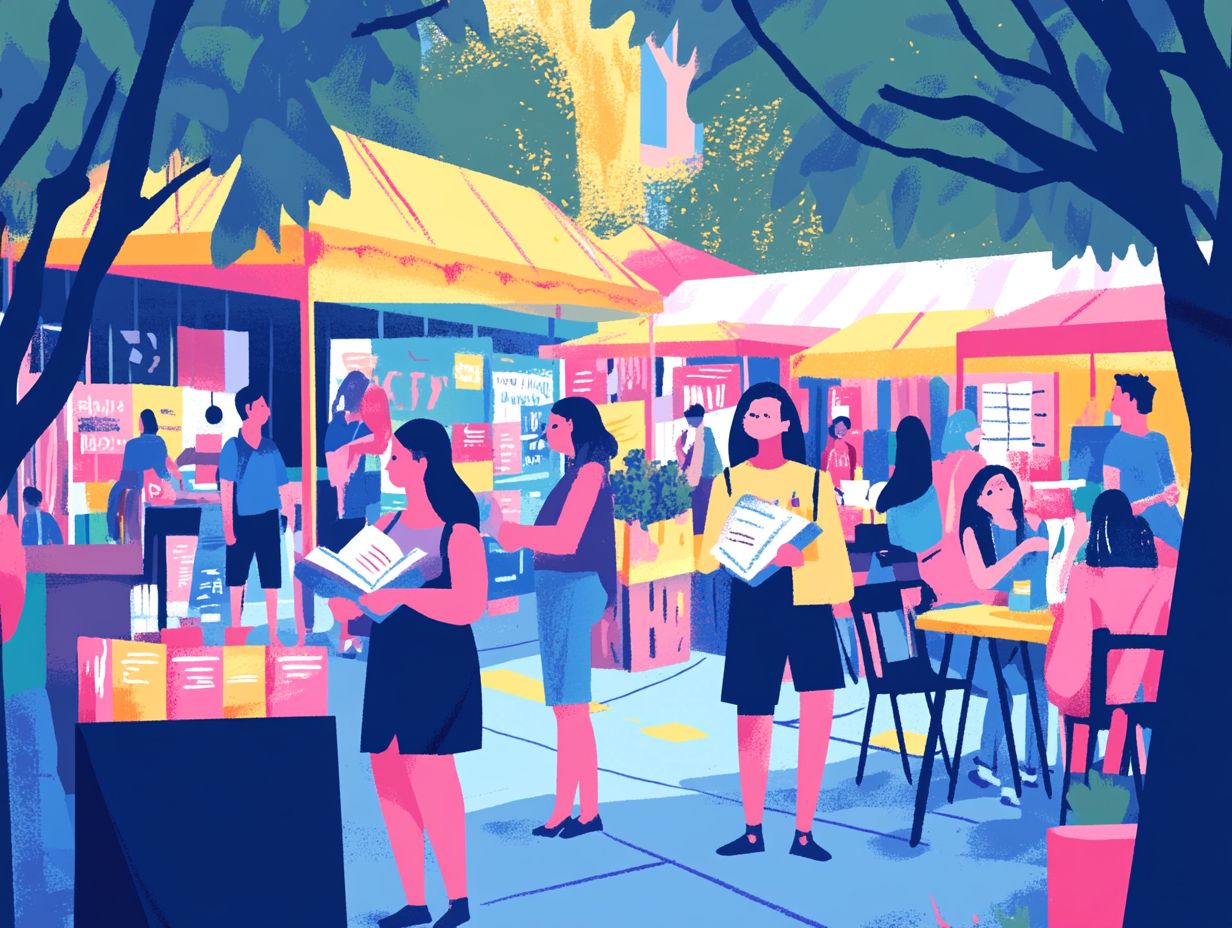
Examples include festivals, concerts, cultural events, food fairs, and sports events. These settings create great opportunities to practice and interact with native speakers.
How can attending public events help improve language skills?
Attending events provides real-life practice in the language. You ll hear different accents and vocabulary, which enhances your listening and speaking skills.
What tips can help maximize public events for language practice?
Engage actively by starting conversations and asking questions. Taking notes on new words helps you retain what you learn.
How can I find public events for language practice?
Search online for language-specific events in your area. Joining language exchange groups or visiting cultural centers can keep you updated on upcoming opportunities.
How can I overcome shyness at public events when practicing a new language?
Remember, everyone is there to learn. Start with small conversations and don t worry about making mistakes; people are usually understanding and helpful.
Can public events substitute formal language learning?
While public events are great for practice, they shouldn t replace structured learning. Formal lessons are crucial for grasping the language’s complexities.
Join local events or language groups to immerse yourself in exciting learning opportunities!

